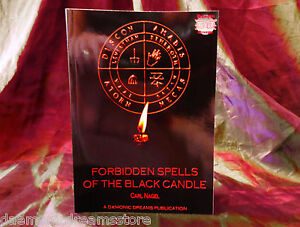There is a tendency to spit the words “Personal Gnosis” for any teaching which does not have an official source.
There is something in this. There is a lot of rubbish esoteric information which can be attributed to someone not understanding established teaching and intellectually covering imaginary holes. Anyone who uses an elemental lesser banishing ritual of the pentagram is a victim of poorly thought out personal gnosis.
One of the things right about the development of the internet and improvements in de-commercialisation publishing is sources which were impossible to find, or academic studies provide valuable material for modern occultists. It has enabled us to go back to historical resources and find out what ancients were doing rather than 19th or 20th-century myths about what magic.
But here is the thing.
Everything is personal gnosis
 All magical traditions, teaching and philosophy, are personal gnosis-based. There is not a single item of sourced magic, which was not once someone’s “personal gnosis.” At all points, someone took existing ideas and merged it with their own and taught this to their students, which is a natural process. When you summon a spirit and talk to it provides you with a way of seeing the universe. You will then apply that knowledge to other items, and after a few years, you will have your spin on things.
All magical traditions, teaching and philosophy, are personal gnosis-based. There is not a single item of sourced magic, which was not once someone’s “personal gnosis.” At all points, someone took existing ideas and merged it with their own and taught this to their students, which is a natural process. When you summon a spirit and talk to it provides you with a way of seeing the universe. You will then apply that knowledge to other items, and after a few years, you will have your spin on things.
Any magic, however literally you have taken the Key of Solomon or the Grand Grimoire, contains elements of your thinking and visualisation. After a while, you will think that your gnosis is part of the tradition and will obey the rules of cognitive dissonance. If your magic works and you are getting something from it, this would be fine.
This new dislike of personal gnosis also assumes that historical magicians were perfect while living teachers are somehow not up to par. Modern authors who have written classics in their time have died without notice and their works and approach, forgotten. Meanwhile, we are seeing rather shitty occult books recycled as being important simply because they are historical.
In the 1980s, there were many “occult books” published with heavy marketing by Finbarr Publications* through Prediction magazine. They were hugely recycled from different sources but packed full of fantastic stories associated with their use. In a thousand years, such works will likely be treated more credibly than they are now due to them being historical. Finbarr reads like the first chapters of Abramelin and people believe that hard sell bollocks even after 500 years. The same applies to the very expensive “dark fluff” leather-bound editions we see around too. If these works were 500 years old, we would be obliged to take them seriously.
Historical magicians may have been wrong
Because a magician existed historically or even wrote down their spells for future use, it does not mean they were right or any better than modern magicians. It equally does not mean their magic worked. While I love using Greek Magical Papyri spells, some of them are half-baked, need developing, or are just too damn short. If I change something, it becomes my gnosis even if I get it to work. If I keep quiet about my innovation, out of fear because of it being “personal gnosis,” someone else must work on the same spell. If they stay silent, the spell will never develope, nor the magical technology evolve.
Sharing personal gnosis is necessarily good. Personal gnosis penned by an armchair magician has limited value. Despite the term armchair magician, theorists are as well informed about magic as they claim. A 21-year-old who believes that they have contacted Satan by wanking on the unfortunate Lord of the Underworld’s sigil is probably worth avoiding too.
One of the things I find funny about reading academic treatises on magic is that without ever having stepped into a magic circle, they cannot join the dots. They can provide detailed descriptions of the ingredients and offer ideas, but they don’t know what a magician might be doing.
Likewise, the idiot who thinks that “everything works if you have the right intention” is going to discover the opposite. This is because there is some truth behind most magical traditions you must look carefully.
It is worth listening to the personal gnosis of someone who has been trained in a tradition and made a spiritual contact – even if you might reject it. A trained person (or someone practically working for a decade or two) they can identify crap at 20 paces. They are less likely to make mistakes and can intuitively “wing it” if something starts to go wrong.
The outstanding teachers out there might appear to be traditionalists, but they are mostly original adaptors who are operating their gnosis and trying to share it.
*I looked them up… they are still going but have upped their game since the 1980s.

Comments are closed